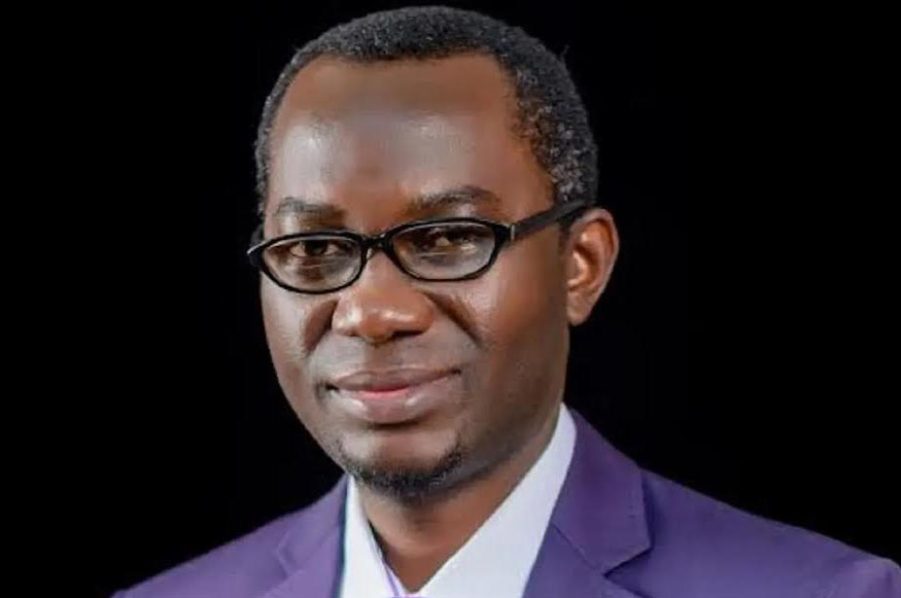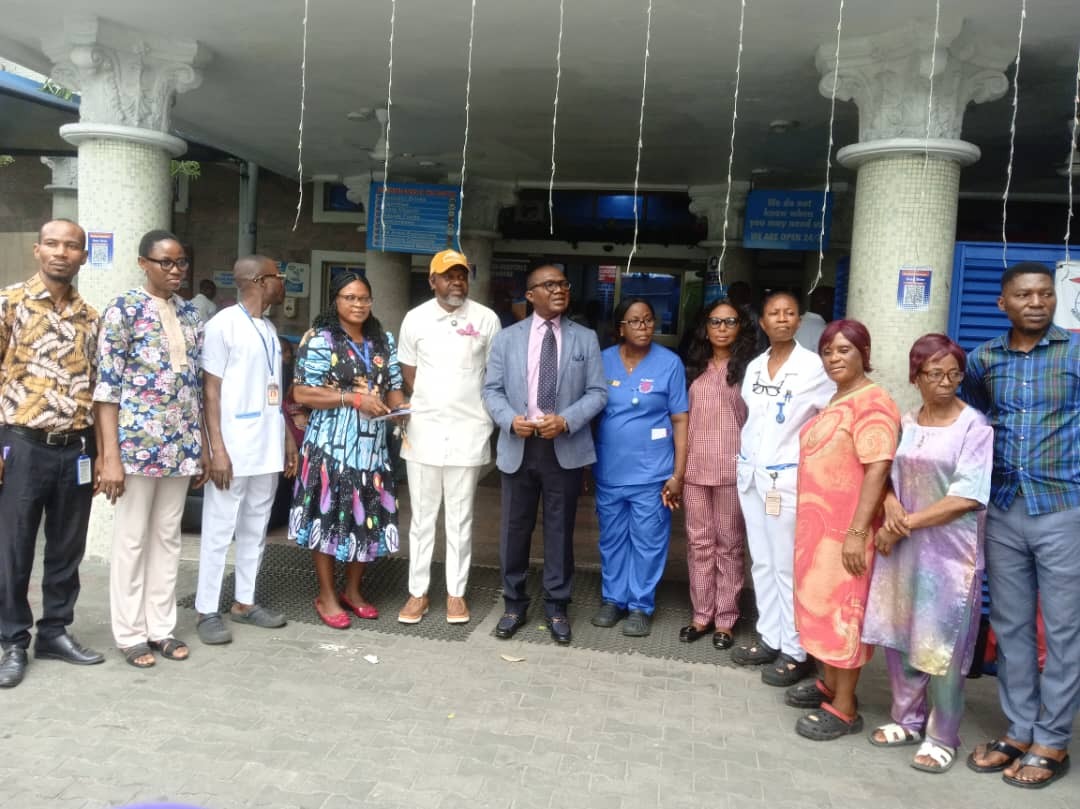
In recent times, thousands of medical doctors in Nigeria have reportedly left the country to the United Kingdom (UK), United States of America (USA), United Arab Emirates (UAE) and some European countries due to poor working conditions. This mass exodus of doctors from Nigeria has further added to the country’s healthcare burden mainly by shortage of professionals and lack of facilities.
At a public lecture organised by the Edo Council of the Nigerian Union of Journalists (NUJ) in September this year, the World Medical Association (WMA) disclosed that Nigeria had a deficit of 250,000 doctors in relation to the World Health Organisation’s (WHO) doctor-to-patient ratio recommendation.
The WMA President, Osahon Enabulele, who made the disclosure, decried the situation whereby Nigeria had only100,000 doctors. Lamenting that the number was grossly inadequate to meet the WHO-recommended doctor-patient ratio, Enabulele said the country needs 250,000 doctors to shore up the number.
However, experts in Nigeria’s health sector have noted that it would be difficult to produce sufficient personnel to effectively meet the country’s increasing healthcare needs with the prevailing high wave of brain drain. They held that it would take Nigeria 20 years, at the minimum, to produce 400,000 health workers needed to fill in the gap and cater to the health needs of Nigeria’s 220 million population.
Speaking with The Guardian, a consultant at the University College Hospital (UCH), Ibadan, who pleaded anonymity, said the working conditions in Nigeria were unbearable.
According to him, doctors were unable to afford basic things while hospitals lacked basic infrastructures, hence the urge to relocate to other climes.
He noted that exhaustion, stress and the need to solve financial problems were plaguing the average Nigerian citizen already.
“Hospitals are short staffed already, doctors are leaving the country and the government is not employing available jobless ones to replace the doctors that have left,” he said.
The source appealed to the government to improve remuneration and social support for doctors, improve infrastructures in hospitals, hire more doctors and invest in insurance schemes.
Investigations by The Guardian revealed that inadequacy of doctors and infrastructure in the hospitals were affecting patients, many of whom had ugly tales to recount.
A victim of an accident along Ikorodu-Epe road, Lagos, Abolaji Emmanuel, said he almost died as a result of the accident because doctors at the Ikorodu General Hospital, where he was initially taken to, were busy attending to other patients.
“I was rushed down to the hospital because I had a fracture on my leg. I was in serious pain and when we got to the hospital, we were delayed for over 25 minutes. It was only the nurses that were applying some things on my leg.
“When the pain was getting too much and I couldn’t breathe well again, my friends took me away from the hospital and rushed me to a nearby clinic where I was to be attended to immediately,” he called.
Another patient, Pelumi Akinbode, said he was unable to see a doctor for two days at Isolo General Hospital because of the crowd at the hospital. She explained that she had malaria and got some drugs from the pharmacy shop but after three days and there was no improvement, she decided to visit the hospital.
“I decided to go and see the doctor so I can get proper treatment but unfortunately when I got to the hospital, I met a lot of people waiting to see the doctor and I spent about three hours still waiting for the doctor’s arrival.
“Till I left, it was just two doctors that were on duty attending to over 200 patients that were there that day. I left and resorted to herbs and after two days, I recovered from malaria,” he said.
Another person, who refused to give her name, said she lost her daughter because there was no doctor to attend to her when she rushed her to the hospital.
She said: “I’m so sad to tell you this because I lost my daughter last October. She suffered a gastrointestinal disease and was rushed to the hospital. I was told they will admit her there and I agreed. After a while, they told me they will operate on her stomach and very quickly I signed for that. They carried out the operation and we were discharged. But getting home, the place of the surgery started pumping out something like blood and I took her back to the hospital but unfortunately, by that time, nobody was ready to attend to her and my daughter bled through that place till she gave up.”
Confronted with these sad tales, a doctor at the Lagos University Teaching Hospital (LUTH), who also pleaded anonymity, explained that the mass departure of doctors has had an enormous effect in the healthcare sector.
He stressed that it has caused shortage of doctors leading to increased workload for the remaining healthcare workers, which leads to a decline in the quality of healthcare services rendered.
“While it is crucial for healthcare professionals to consistently shoulder their responsibilities, my personal experience highlights that complaints about attendance often stem from the strain placed on doctors due to a diminished workforce. ”
“For instance, a doctor in a department may find himself responsible for ward rounds, theater duties and clinic appointments within a single shift. You would definitely have complaints like this,” he noted.
He added that poor welfare and compensation, challenging working conditions/schedules, and limited support from the healthcare sector remain the major reasons for the migration of doctors.
“These are healthcare professionals who have dedicated so many years of their lives and resources to becoming what they are. Like the average human, they have families and projects to take care of. They deserve a better life too,” he said.
He explained that the brain drain being experienced in hospitals would continue until the government prioritises the welfare of health professionals, especially doctors.
“It has been disappointing. Rather than actively seek long-term solutions to these challenges, they have not only chosen to disregard them but have also resorted to inventive ways of hindering those who are already making significant sacrifices by remaining in the country to contribute to its workforce. It’s quite shameful; to say the least.
“The main thing that needs to be addressed immediately is the general welfare of doctors. A befitting compensation, healthy working conditions and incentives for returning doctors would be a good place to start from,” he added.
Another doctor, Dr. Olajide Jide, who works at the Disease Control Unit, Isolo General Hospital, said every profession in Nigeria is not appreciated except politics, hence when the professionals see opportunity elsewhere, they are always glad to take it.
Olajide said: “On a normal basis, a doctor is supposed to attend to just five patients or at worst 10 per day but if you go to our hospitals, you will see a doctor attending to 50 to 100 patients per day.
“That is why you will see patients spend much time waiting for a doctor to attend to them. Just to complain about typhoid and malaria, you will see patients waiting for one hour because the doctors have a lot of people to attend to.
“This situation is worse at the primary health care centres. We have more people at the General Hospital. It is so bad that doctors in General Hospitals are not up to 30 whereby you have about 1,000 patients waiting outside to see a doctor almost on a daily basis.
“So, patients will wake up as early as 7.00am to make sure they pick an early number. Patients are not supposed to come to the hospital to pick numbers.
“Nigeria produces doctors every year but they don’t get jobs; they just try and get their masters and then japa (migrate).
“Many of the doctors we have own private hospitals. Even when they are at work, they still get emergency calls from their private hospitals and they will rush down to attend to them.
“The government doesn’t pay doctors well. Why are politicians not leaving the country to go and practice elsewhere? If you are well paid, you won’t think of leaving the country to work abroad. If doctors are getting good treatment here in terms of welfare, the majority of them will not travel abroad.”






